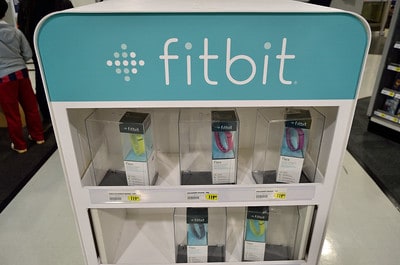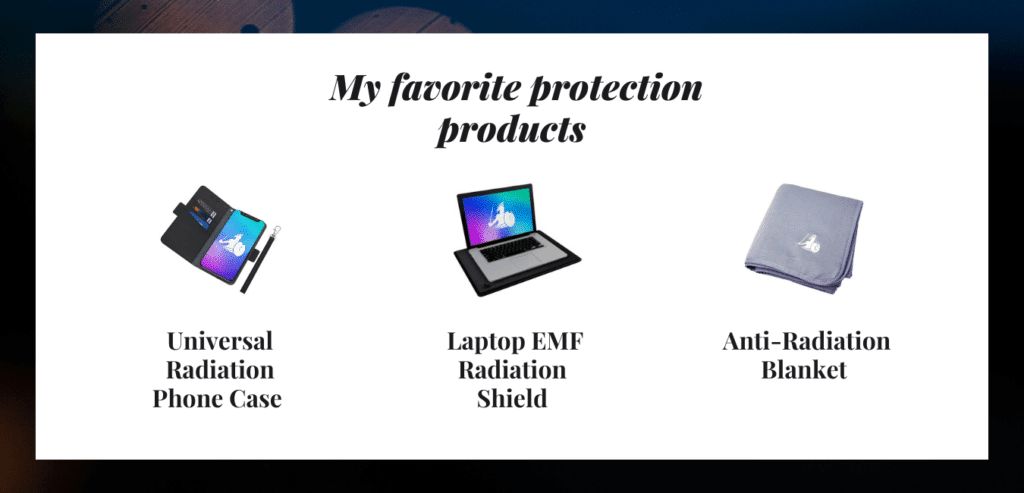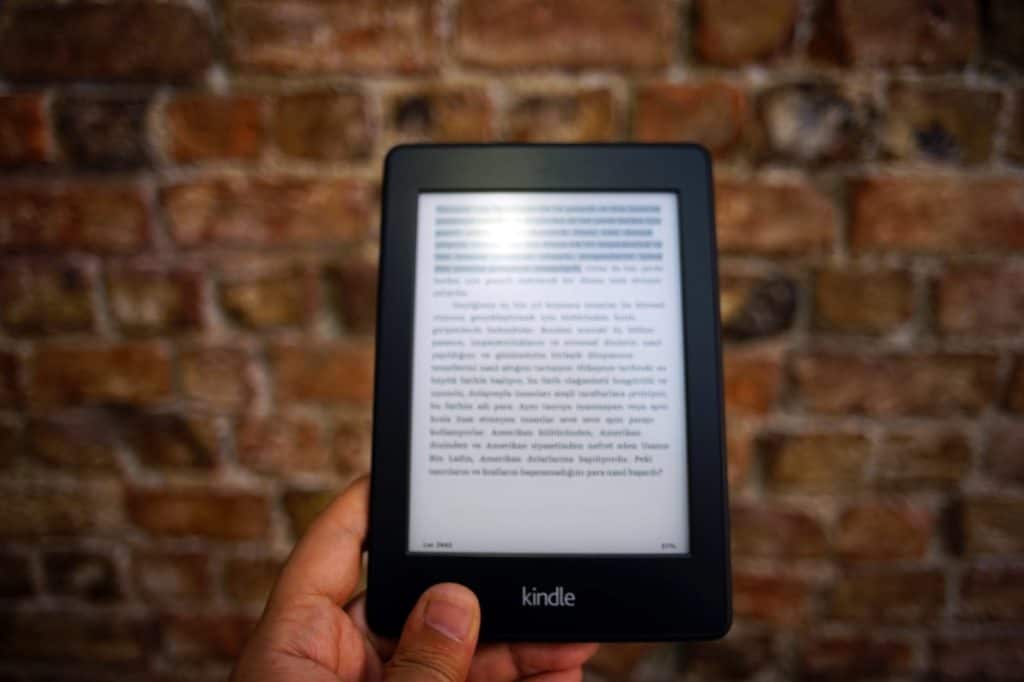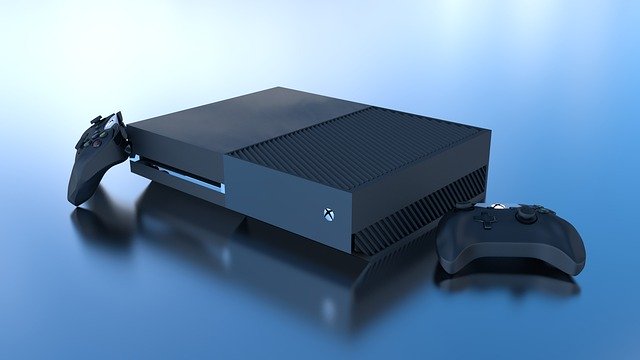
Does Your Fitbit Emit EMF Radiation? I have spent many hours researching the answer for this article.
Fitbits and wearable technology in general seem to have taken the public by storm. It is already being hailed as the next big innovation, with all the major players in tech sinking their teeth into it, coming up with their own iterations of the same product.
Frankly, it is understandable why these gadgets have reached such pinnacles of popularity within a short period of time – they are novel innovations that look beautiful and are essentially the first gadgets enabling us to truly assimilate our lives with technology.
Don’t get me wrong, we were quite dependent on tech even before with the advent of things like smartphones and computers but wearable technology has seemed to bridges the gap between a device and us, thus truly enabling assimilation.
If you’ve been living under a rock for the past couple of years and have no idea about what wearable technology is, let me quickly summarize it for you. When cell phones were introduced back in the early ‘90s, they used to be massive and bricklike.
Ever since we’ve actively tried to make them smaller and more portable. The boom in silicon technology and semiconductor electronics allowed us to achieve just that and more. The cellphones of today are a fraction of what they used to be in terms of width and weight.
They fit easily into your pocket, have massive screens for the immersive viewing experience, and has really transcended from being just a phone to a smart device that can do it all. It is such an important innovation to humankind that it has literally bought the world to one’s fingertips.
Wearable tech are the next wave of this innovation. Cellphones are great but they still are devices that we need to carry around. Wearable tech bridges that gap by being an everyday accessory.
There are multiple wearable techs available on the market today from watches to rings and so on. The most popular, undoubtedly, are the watches.
They look stylish, an ooze of sophistication, and come packed with a bunch of nifty features that you’d be hard-pressed to find in a regular watch. And one of the first ones on the market was the Fitbit.

| Universal radiation phone case | Check price here |
| Laptop EMF radiation shield | Check price here |
| Anti- Radiation blanket | Check price here |
Fitbits: Watches vs trackers
Fitbit describes themselves as the one-all solution to wearable tech.
While they started solely as a fitness tracker, they now also manufacture smartwatches and other smart accessories as well. Fitbit started off as a solution to help you reach your fitness goals.
They came loaded with a bunch of really nifty sensors that allowed the device to measure all kinds of things from calories burnt to quality of sleep.
They came with an app that you could install on your phone, plug in your information such as weight and height and they would suggest to you custom diets and whatnot to help achieve your fitness goals.
It was really a lifesaver for people who couldn’t afford expensive personal trainers or dieticians but now could still get useful custom information that they could implement and potentially benefit from.
The app was also designed to gamify this journey of fitness in order to keep the user motivated by giving out badges and points. The app was meant to be connected to the tracker via Bluetooth and thus sync data between the two devices.
It also helped analyze your sleep patterns and suggested ways you could implement to improve your sleep quality. Overall, the Fitbit tracker added a lot of value for its user and was an instant hit.
However, Fitbit soon realized the general populace’s affinity towards smartwatches and was quick to jump on the bandwagon. They introduced the Fitbit smartwatch which could basically do everything that the tracker could and more.

They also had the ability to connect to your phone wirelessly, thus giving you the opportunity to scroll through notifications and other important things directly from your phone.
They had a much sleeker look, had extended battery life, was waterproof, and came with Amazon’s Alexa smart assistant built-in. Therefore, you could potentially just speak to your smartwatch and do things like send an email or book a cab.
It also lets you set alarms and search Google for places near you. One of the most novel features of the Fitbit watch perhaps was the on-screen instruction videos that you could see do double check if you have the correct form for the exercise you’re doing.
The Fitbit watch also came with a heart rate monitor that enabled users to record their cardiovascular activity and sync the data with their proprietary app.
This has turned out to be a real lifesaver for a lot of people. The internet is filled with stories of users who suffered heart attacks and doctors benefited massively in looking at the heart data from the attack on the user’s phone and thus recommending better diagnosis.
The benefits of using a Fitbit are multiple and its novelty is unquestionable. However, in the next section, we will try and find out if it is indeed safe for us to be using these Fitbit products and are there any health risks that may arise from continuous usage.
The risk of using a Fitbit
Fitbit’s are great products but they do have their own downsides. The Fitbit offers so much value but can also be unsafe when considering the increased health risk it can put us in.
If you’ve been a reader of this blog for a while, you’d know how I feel about wireless tech and the dangers of radiation.
Fitbit is no different. Fitbits have been shown to emit levels of radiation that can turn out to be unsafe in the long run if one were to use the device regularly.
Fitbit’s emit two major types of radiation – EMF and Radio Frequency. Let’s deal with each one individually.
EMF is generated when current passes through a conductor. Faraday’s law states that an equal amount of magnetic flux will be produced which we call EMF.
All electronic devices produce EMF and they are usually harmless, considering the short-range and low power of the radiation.
However, in the case of wearable tech such as a Fitbit, these radiations cannot be ignored since the device is strapped to us at all times and our bodies are constantly getting exposed to these radiations.
The next set of radiations generated by Fitbits are RF. This is usually generated when a smart device is connected to a network. This network usually is either Bluetooth or Wi-Fi.
Since it connects to your phone via Bluetooth and also comes with Amazon Alexa for which it needs Wi-Fi, the RF radiation emitted is double that of a regular smartwatch.
The dangers of Fitbit radiation
Our bodies are very resilient in most circumstances. They can pretty much take a beating and still heal itself with time.
However, if we were to somehow damage our body’s internal framework, it gets more and more difficult to heal and forces the body to manifest that damage in other physical forms.
The radiation from the Fitbit interacts can directly with your tissues and bones. This is dangerous since the thermal properties of the radiation put your body under stress and it becomes tough for your body to carry out regular maintenance work.
On top of that, the radiation interacts with your bones as well, making them brittle with time and fundamentally altering the structure of the marrow. Sited by: R.S. ChiuDept. of Electr. & Comput. Eng., Univ. of Victoria, BC, Canada
This can lead to severe medical complications including loss of motor skills and bad hand-eye coordination. The radiation doesn’t allow the body to take a break.
This creates additional stress and often leads to faulty cell multiplication. That could be dangerous since a faulty cell not checked in time might turn rogue and form bone cancer.
And for all the amazing features that the Fitbit offers, for me, it is not worth the risk.
What can you do about it?
The best thing you can do about it is not to use a smartwatch. You really do not need every step you take to be measured and every carb you eat to be accounted for. We were still fit and fine before inventing a fitness watch and we will still be now if we just tried.
If that is absolutely not an option for you, the next best thing would be to go for a simple activity tracker.
Use it to track everything you do but do not connect it to your phone or another local network. When you come home, sync the data then so that you are not directly exposed to RF radiation all day long.
My personal favorite EMF detection and protection products.
- DefenderShield EMF Radiation Protection Blanket – Ultimate protection from wireless radiation. The only EMF radiation protection blanket with multiple layers of shielding to block up to 100% of wireless (RF) radiation from cell phones, tablets, laptops, WiFi routers, and other electronic devices, and ambient emissions in the environment. Available on Amazon here.
- DefenderPad Laptop EMF Radiation Protection & Heat Shield. The DefenderPad is the ONLY laptop pad that uses multiple layers of shielding to block up to 100% of laptop EMF radiation (RF & ELF) while also greatly reducing heat! Get the latest price on Amazon here.
- DefenderShield Universal EMF Radiation Protection Pouch for Smartphones – EMF shielding to block up to 100% of wireless (RF) radiation. Most pouches only block a percentage of radiation emitted from your cell phone. Shielding is within the backside of the pouch to block signals and EMF emissions going towards the body, yet does not interfere with phone connectivity. Available on Amazon here.
- Copper Fabric Blocking RFID/RF-Reduce EMF/EMI Protection Conductive Fabric for Smart Meters – Very easy to cut and sew. Usage for Bags, Curtains, Tents, etc. Effective Shielding for CellTowers, Microwave Signals, Phones, and Smart Meters. Find it on Amazon here.
- TriField EMF Meter Model TF2. is an AC gaussmeter, AC electric field meter, and radio power density meter in a single unit, that combines all the features needed for fast, accurate measurements of electromagnetic fields (EMF). Best price on Amazon here.
Related questions
- Should I get a Fitbit tracker or a Fitbit watch?
Our advice to you would be to get a Fitbit tracker. Sure, the watch has way more functionalities but the Fitbit tracker has all the essential ones and can help you reach your fitness goals.
It also syncs with their proprietary app so your data is saved and right there for you to analyze and appreciate how far you’ve come. We are recommending the tracker over the watch simply because it produces way less radiation and is considerably safer for your health.


